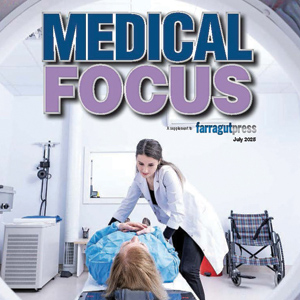Microchipping almost routine; ‘Check the Chip Day’ Aug. 15
Q: Our family just adopted a shelter dog. We were pleasantly surprised when they told us that they microchipped before we picked him up. Is that fairly routine now? R.S., Farragut
A: First, congratulations and thank you for adopting. There are still so many dogs and cats at our shelters that need permanent homes.
And yes, microchipping at the time of adoption has become routine at many shelters, including Knox County and surrounding areas.
The microchip is a permanent means of identification. The chip itself is quite small, about the size of a grain of rice, containing a unique sequence of numbers and letters. The chip is inserted between the shoulder blades just underneath the skin. The location is standardized, so that if your pet is lost in a different state, scanning for identification is simplified. Most microchip companies provide a tag to be placed on the pet’s collar as an outward sign to pet owners, veterinarians and/or shelter staff that the pet has a microchip.
The microchip number is enrolled in the manufacturer’s database. Check with the shelter – your personal information provided at the time of adoption may have been already entered or you may have to finish the registration process. It is important to keep your information current if you should move and/or get a new phone number. Many manufacturers have a lifetime registry included (no annual fees). Please check with them if you are unsure.
If a lost or stray pet is found, your local shelter or veterinary clinic will use a microchip scanner to see if that pet has a chip. If a chip is present, the ID number is revealed. By accessing the owner’s information in the computer database, pet owners can be reunited with their pet. Since the technology was introduced in the 1980s, it is estimated that microchips have reunited over three million pets with their families.
Aug. 15 is National “Check the Chip Day.” This was created to remind pet owners to get your pet microchipped, check your pet’s microchip to ensure proper functioning and/or to check to ensure your personal information is correct.
If you have a question about your pet, e-mail Dr. Myers at lenoircityanimalac@gmail.com


